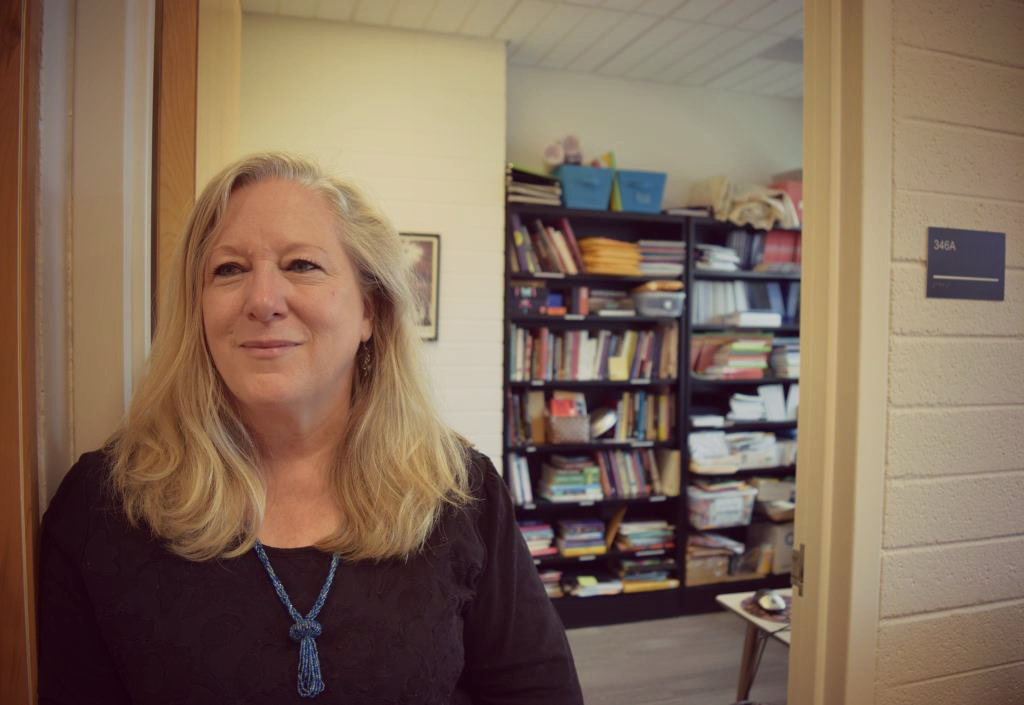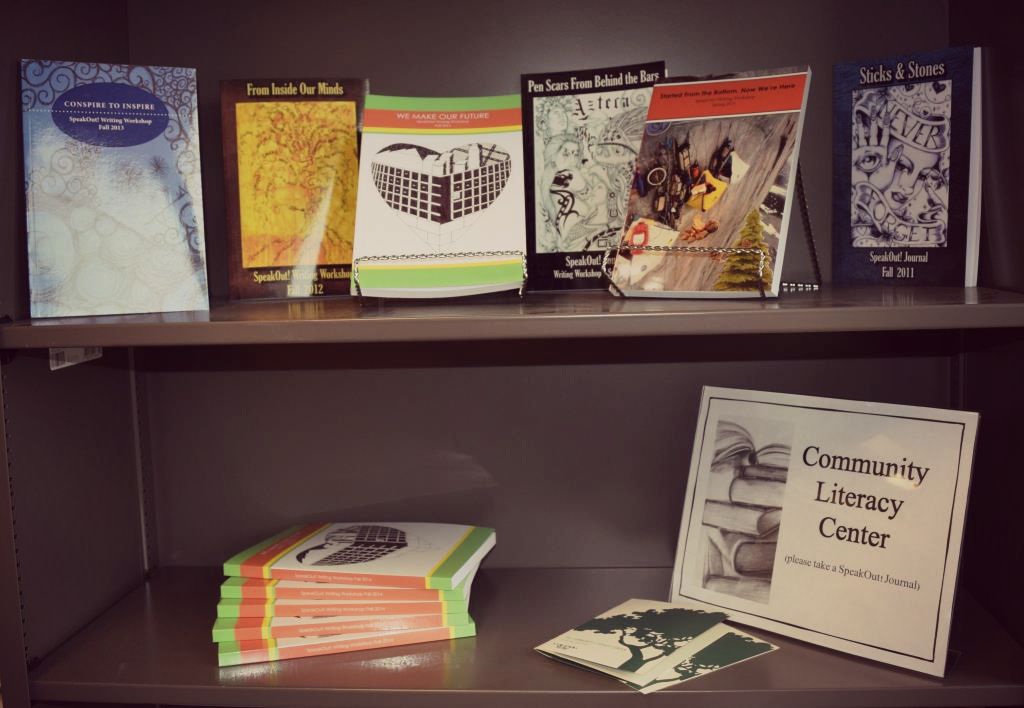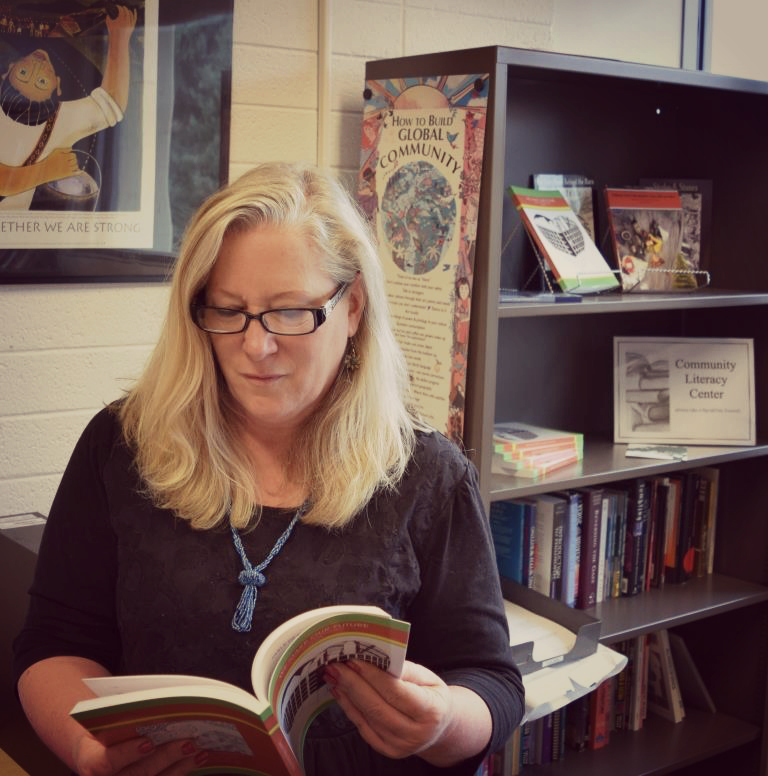Mary Ellen Sanger
Associate Director Community Literacy Center
What brought you to CSU?
Since moving to Fort Collins two years ago (for love), I have volunteered at CSU: with the Community Literacy Center leading writing workshops at Larimer County Detention Center, and with Mary Ontiveros and the Diversity team on a project they had in hand at that time.
What is the Community Literacy Center (CLC)? What is it doing that we should know about?
This year the CLC celebrates ten years of promoting literacy through SpeakOut! writing workshops, enhancing opportunities for creative expression for confined populations and at-risk youth. From its inception in 2005 when SpeakOut! consisted of a single workshop for the women in the Larimer County Detention Center (LCDC), this year we expand to six – maybe even seven – workshops at the LCDC for men and women, Community Corrections for women, and Turning Point, Matthews House and Remington House for young men and women. These workshops promote community action and social change, culminating at the end of each semester in a creative journal compiling the voices of writers who have participated in the program. Please stop by the CLC office – we would love to share a journal with you! The voices are surprising and clear and need to be heard.
What is your current role at the CLC?
As the (first ever) Associate Director of the center, and after two years as a volunteer workshop facilitator, I assist Tobi Jacobi in the administration of the program and mentoring and guiding volunteers and interns.
What does your typical day of work there look like?
Thankfully I haven’t experienced anything typical about my days yet. One day I will be meeting with the six inspiring interns who chose to enrich their university experience through learning to facilitate creative spaces with SpeakOut!, another I will be polishing several grants we are putting in place to help fund our anniversary activities, or hanging a solidarity poster in our refurbished office, making appointments to get to know the contacts at our workshop sites, or devising a new spreadsheet to record attendance statistics. It’s a great position for me, where I get to use a lifetime of career experience in one small but powerful office.
What is one of your favorite things about the CLC?
The CLC provides safe spaces for expression for so many whose voices may not otherwise be heard – important for the writers and for the listening community as barriers blur and diverse groups come together. That this work is facilitated by energetic, curious and visionary interns (and volunteers) is one of my favorite things. They invest their time, intellect and hearts in facilitating important spaces for literacy, writers develop and share their voices, and the model moves forward as interns carry the experience into their post-workshop life, enriched and enriching.
What do you enjoy most about your work?
I like knowing that some of what I do may make a difference in how someone experiences the world and their space in it.
What special project are you working on right now?
The CLC is working on activities around our tenth anniversary. Depending on funding, we are planning a ten-year retrospective publication, with material compiled from the journals published each semester containing writing from all the programs, and one or more special activities that can celebrate the reach of the program and as importantly, its future.
Why are the Humanities important?
Long ago I was a science and mathematics nerd, who just happened to read and write a lot. I tripped over foreign languages (particularly Spanish) and appreciated the doors that opened as I rubbed up against a broader range of human experience.
That is a great part of the strength of the Humanities – with a base in Humanities, we are able to contemplate our role as intellectual, moral and spiritual members of society, grapple with social justice issues, imagine and express a better future.
What had the greatest influence on your career path?
My “path” was a meandering one. I moved from publishing with Academic Press in San Diego in the 80s, to tourism in Mexico in the 90s and 00s, to nonprofit administration in NYC during the past ten years. I think that the experience of living in a country where more than half of the population lives below the poverty line (that, plus advancing age) has instructed me to devote my time to matters that matter, and not to a stranger’s bottom line.
What did you want to be when you were a kid?
I wanted to be a doctor. Until I realized I had to dissect cats in college. Nope.
What or who inspires you?
Solidarity inspires me. Yes, definitely solidarity.
What accomplishments are you the most proud of?
I was in jail in Mexico. That’s not the thing I’m proud of. After 17 years living and working there, I was falsely accused and imprisoned for 33 days. I wrote a book about the experience, and while I am proud of having written the book, I am more proud that those who have read it, close the cover and say – “what an amazing community of women you met inside!” I am proud to have been able to bring something of their voices home with me, and release their solidarity into the world.
What book or reading experience had the biggest impact on you?
We just lost one of my favorite writers earlier this year. Eduardo Galeano, from Uruguay, who wrote: “We are all mortal until our first kiss and our second glass of wine.”
What are you currently reading, writing?
Currently reading: Lucia Berlin short stories – “A Manual for Cleaning Women”
Currently writing: in my head, the next great Mexican-American novel. On paper, poem-esque scribbles with the women of Community Corrections.
When you’re not working, what do you do?
Every spring I grow a whole garden from seed. I can’t survive without that miracle. When the garden fades in fall/winter, I make altered-photo transfer prints of the blooms. I pet two rescue cats throughout.
What’s one thing you dream of being able to accomplish in your time at Colorado State University?
I dream of unearthing hearty, steady, earnest funders who understand the importance of keeping alternative literacy spaces vibrant and growing.



